Have you ever found it difficult to sleep when you’re feeling angry, sad, or stressed out? And when you get up in the morning with a poor night’s sleep do those feelings just get worse? If you answered yes, then you already know about the connection between sleep and mental health.
Sleep and mental health have a strong correlation. Sleep and mental health rely on one another — when one isn’t functioning properly, the other suffers as well. A lack of sleep can initiate or worsen many mental health disorders, including anxiety and depression. Mental health issues can also make it harder to achieve healthy sleep.
How Does Sleep Affect Mental Health?
Sleep affects mental health in a number of ways. The body, and particularly the brain, needs sleep to function properly. Vital cognitive processes, like memory consolidation and neural communication, mostly occur during sleep. Without proper sleep, our brains cannot function normally during the day.
When we don’t get enough sleep, it makes it harder to remember information, regulate our emotions, concentrate, and focus. Long term, sleep deprivation leads to increased risk for mental health disorders like anxiety and depression. Research has found that 50% to 80% of psychiatric patients suffer from chronic sleep problems, as opposed to just 10% to 18% of adults in the general population.
Though much more research is needed to fully understand the complex relationship between sleep and mental health, it is clear that the two are closely connected. Evidence of this close relationship is clear in the way sleep affects numerous common mental health conditions.
Emotional Wellness and Sleep Health Resources
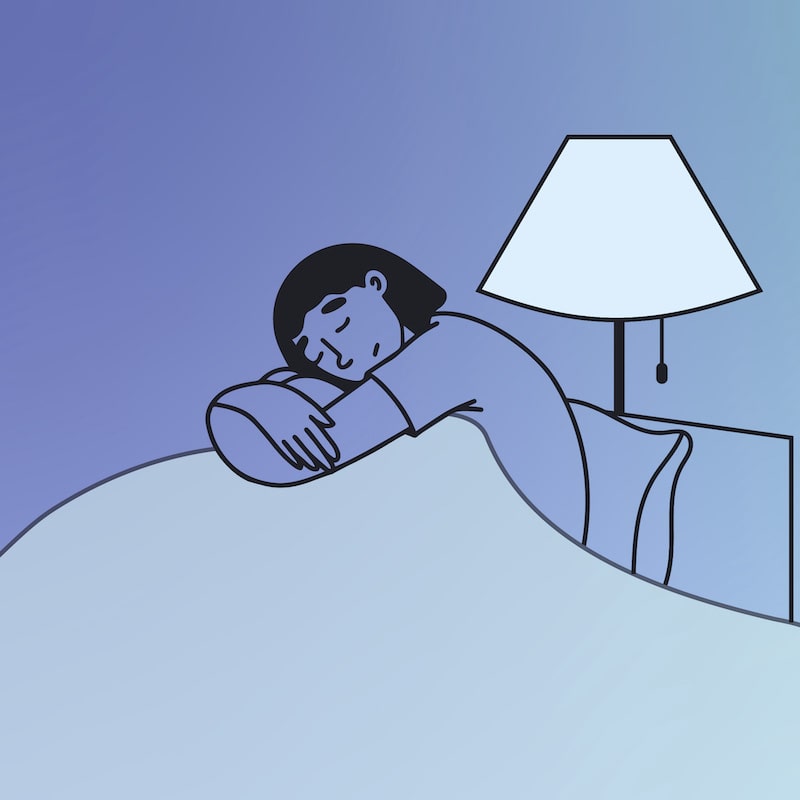
41 Sleep and Mental Health Statistics and Facts
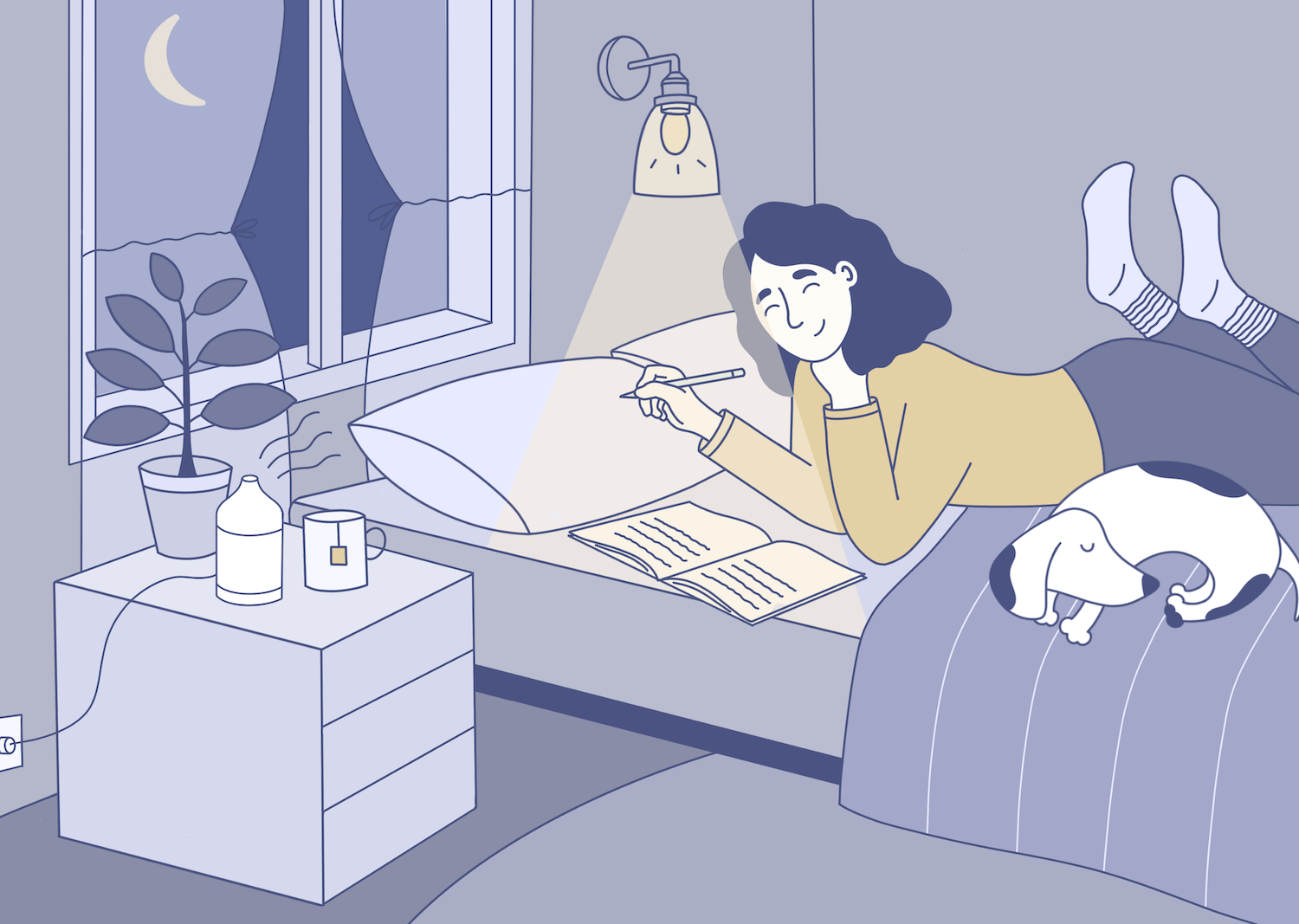
21 Tools for Emotional Wellness and Sleep Health
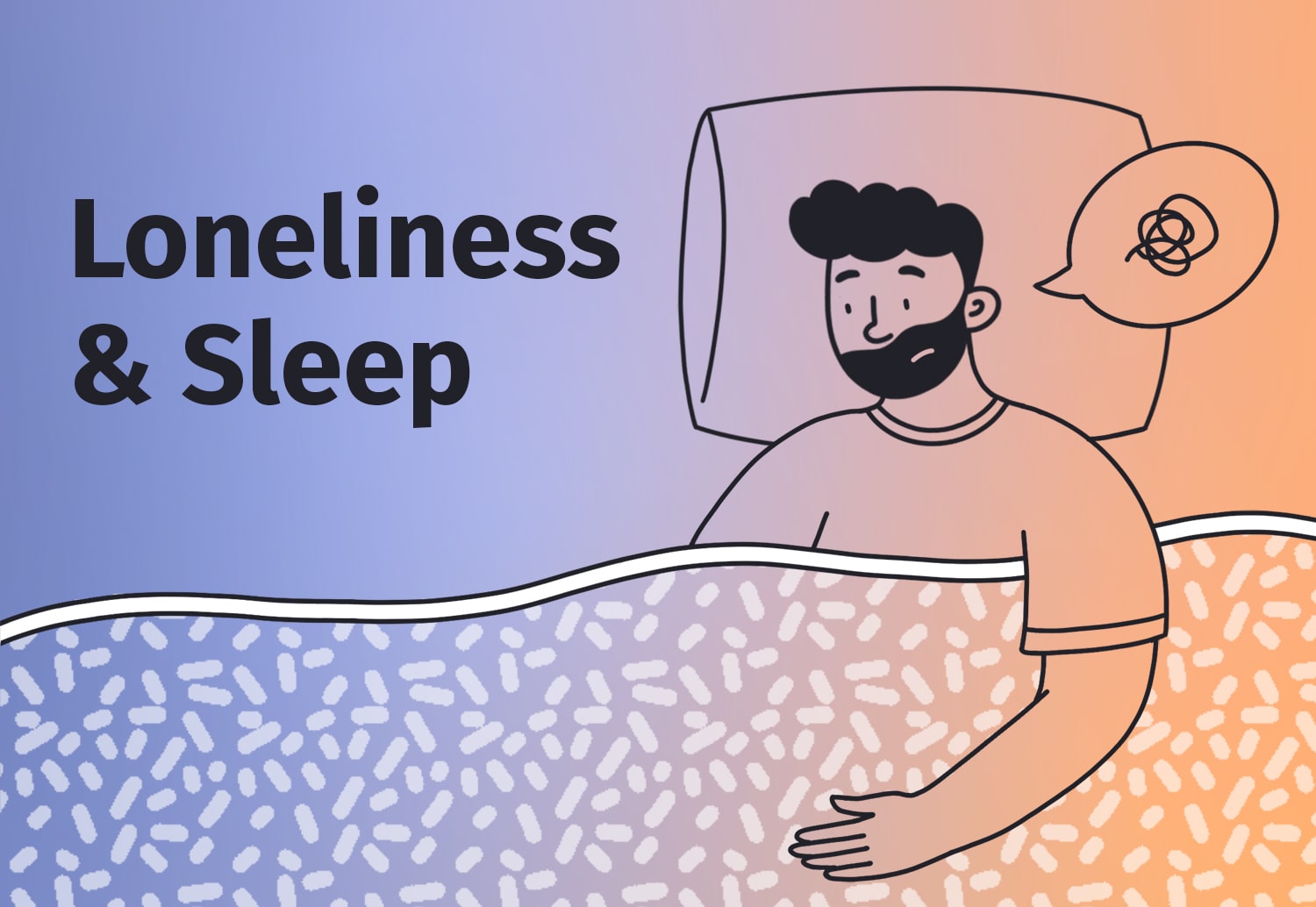
Loneliness and Sleep
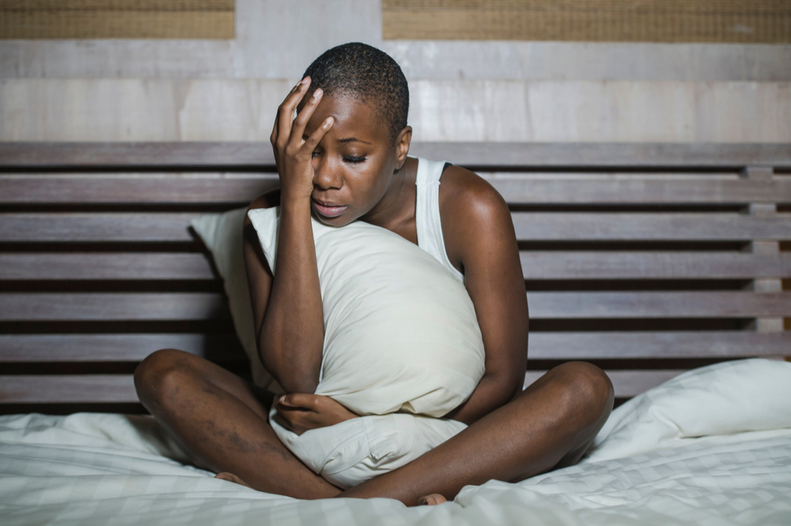
A Complete Guide To Sleep And Depression
Sleep and Specific Mental Health Conditions
There is a wide range of mental health conditions that are negatively impacted by improper sleep. Take a look below at some of the most common disorders and how sleep affects them.
Depression
Depression is one of the most common mental health disorders, affecting more than 17 million adults in the United States annually. Depression is a mood disorder that affects emotions and mood. For many, it leads to a continual feeling of sadness that doesn’t resolve. There are a number of different types of depression, including postpartum depression (occurs after giving birth), persistent depressive disorder (PPD), and seasonal affective disorder (SAD).
There is no single cause of depression. However, there are a number of factors that can lead to it, including prolonged stress and hormonal changes. These factors also interfere with sleep, which has a bidirectional relationship to depression. Studies show that those who are depressed are more likely to suffer from insomnia. Conversely, those with sleep problems or disrupted sleep are more likely to have depression. Though getting proper sleep won’t cure depression, when coupled with a healthier lifestyle, it can greatly improve symptoms.
Anxiety
Anxiety is another very common mental health disorder. It affects more than 40 million adults in the United States. Though anxiety can present itself in myriad ways, it is typically associated with feelings of nervousness, worry, and unease that are difficult to control. Though the feeling of anxiety is common, persistent or intrusive feelings of anxiety are signs of a disorder. The most common anxiety disorders are generalized anxiety disorder (GAD), social anxiety disorder, panic disorder, and agoraphobia.
Anxiety and sleep are closely connected, and when one suffers, the other does as well. This creates a vicious cycle, in which individuals will be prevented from sleeping due to feelings of anxiety, and their anxiety will worsen due to lack of sleep. In addition, experts have found that anxiety disorders are often linked with insomnia. Some forms of anxiety will require medication to help sufferers sleep better, but certain lifestyle changes can help ease symptoms. Going to bed at the same time each night, not using your phone in bed, avoiding alcohol and caffeine before bed, and managing thoughts related to sleep all contribute to a better night’s sleep and reduced feelings of anxiety.
Grief
Grief will be experienced by most people in their lifetime. Grief can arise from a number of situations, including death of a loved one, divorce, job loss, miscarriage, health problems, loss of a home, and more. Grief can lead to both physical and mental symptoms, including intense sadness, inability to focus on anything other than the loss, numbness, suicidal thoughts, weight loss, body aches, and many more.
Grief can have a mild or severe impact on sleep health. Research found that the more intense the grief, the more likely the person will suffer sleep loss. The Mayo Clinic refers to complicated grief as grief that is persistent and interferes with a person’s ability to go on with their life. One study found that complicated grief was associated with lower sleep duration and lower sleep quality. Though grief has to run its course, some ways to sleep better while grieving include taking time to emotionally process during the day, keeping a sleep journal, meditating, and seeking social support.
Loneliness
Loneliness is a normal human emotion, and is experienced by most people at some point or points in their lifetimes. However, when loneliness is persistent and feelings continue to get worse, it’s referred to as chronic loneliness. Telltale signs of loneliness include isolating oneself, social anxiety, extensive time on social media, body aches, confusion/memory problems, and tiredness.
Not only does loneliness tend to make sufferers feel tired, but it’s also associated with lower sleep efficiency. Additionally, as humans are social creatures, loneliness can increase levels of the stress hormone cortisol, which can make it harder to sleep. Loneliness is also associated with weight gain and increased risk for drug abuse, which both worsen sleep quality. According to experts, the best way to combat loneliness is to reach out to others, whether they be family, friends, or a support group.
Seasonal Affective Disorder
Seasonal affective disorder (SAD) is a type of depression that is linked to the change in seasons. It’s relatively common, with about 10 million US adults experiencing it each year. The effects of SAD usually take place at the end of autumn or beginning of winter, when the days begin to get shorter. SAD sufferers often experience a dip in their energy levels and an overall worsening of their mood. People with SAD report feeling depressed, lethargic, and unmotivated during the winter months.
Though depression itself is linked to worse sleep quality, those with SAD have some added detriments. SAD is linked to the amount of sunlight a person gets, and sunlight is what signals to the body when it’s time to be awake and asleep. Those with SAD are more affected by sunlight changes, and struggle to sleep properly with low sunlight levels. There are a number of ways that SAD is treated, including sunlight therapy lamps, behavioral therapy, and medication.
PTSD
Post-traumatic stress disorder (PTSD) is a mental health condition that arises from a severely distressing experience. It can occur from a number of different terrifying events, and can affect both those who witness and are affected by it. Common symptoms of PTSD include flashbacks, nightmares, and inability to complete daily tasks. Avoidance of place and people that trigger memories of the event, changes in mood, and increased levels of fear and uneasiness are other common symptoms, according to the Mayo Clinic.
PTSD often has a negative effect on sleep. Up to 80% of people with PTSD report experiencing nightmares related to their trauma. Trouble falling and staying asleep is also common in PTSD sufferers. Lastly, those with PTSD are more likely to use drugs and alcohol to cope, and these substances also negatively impact sleep. For many, therapy is needed to help ease symptoms of PTSD and get their sleep back on track.
ADHD
Attention deficit hyperactivity disorder (ADHD) is one of the most common neurodevelopmental disorders in children, according to the Centers for Disease Control (CDC). Although there are different subtypes of ADHD, general symptoms in children include difficulty controlling impulses, trouble paying attention, and inability to sit still. ADHD is also seen in adults, and may present itself as difficulty concentrating, feelings of restlessness, difficulty performing at work, and strained social relationships.
Children with ADHD have a higher risk for developing insomnia and other sleep disorders. It’s believed that these children struggle to sleep as their minds remain overly active, even throughout the night. Unfortunately, when these children who don’t get proper sleep, their ADHD symptoms worsen. Parents of children with ADHD should take their children to see a pediatrician, who may prescribe medication, therapy, and/or lifestyle changes.
Bipolar Disorder
Bipolar disorder, which was previously called manic depression, is a mental health condition characterized by periods of extremely elevated moods (mania) and extremely low moods (depression). According to the Mayo Clinic, Manic periods are characterized by feelings of euphoria, high energy, and irritability, while depressive episodes are characterized by feelings of sadness and hopelessness. Episodes can be rare or occur many times throughout a year.
Bipolar disorder can affect sleep in a range of ways. It can lead to insomnia, hypersomnia (oversleeping), disturbed REM sleep patterns, changes in sleep-wake cycles, and more. The majority of people with bipolar disorder report feeling a decreased need for sleep during manic episodes and an increased need for sleep during depressive episodes. Some treatments for bipolar disorder include medication and psychotherapy.
OCD
Obsessive compulsive disorder (OCD) used to be classified as an anxiety disorder, but is now considered its own disorder. It affects about 2 million people in the United States each year. According to the Cleveland Clinic, people with OCD “have recurring and distressing thoughts, fears or images (called obsessions) that they cannot control. The distress these thoughts produce may lead to an urgent need to perform certain rituals or routines (called compulsions).” Though the symptoms of OCD range from person to person, common obsessions include fear of germs, fear of a family member dying or being hurt, fear of social situations, and fear of disorder and/or asymmetry.
Those with OCD may perform “rituals” to combat their fears. These rituals may include, for example, handwashing, counting, checking things, eating foods in a specific order, repeating words or phrases, collecting or hoarding items, and more. For those with OCD, these rituals cause distress and take up a lot of time. Sufferers can struggle to get to sleep if they haven’t completed their rituals, or may feel an urge to get up in the night to do a ritual. One study found that people with OCD had worse sleep quality and more sleep disturbances than the general population. Common treatments for OCD include cognitive behavioral therapy (CBT), medication, and outpatient programs.
Schizophrenia
Schizophrenia is a severe mental health condition in which individuals struggle to perceive reality normally. It is a somewhat rare disorder, affecting just 1% of people worldwide. Those with the condition often experience hallucinations, delusions, and disordered thought patterns. Individuals with schizophrenia often require lifelong treatment that may include medication, living with a guardian or carer, and regular therapy. Symptoms of schizophrenia typically present in men during their early 20s and in women in their late 20s.
People with schizophrenia are more likely to have sleep problems. In fact, a study found that the vast majority of schizophrenic patients report suffering from sleep problems. Of those sleep problems, insomnia is the most common. Other common sleep disorders linked with schizophrenia include obstructive sleep apnea and restless leg syndrome.
Meditation and Sleep Resources
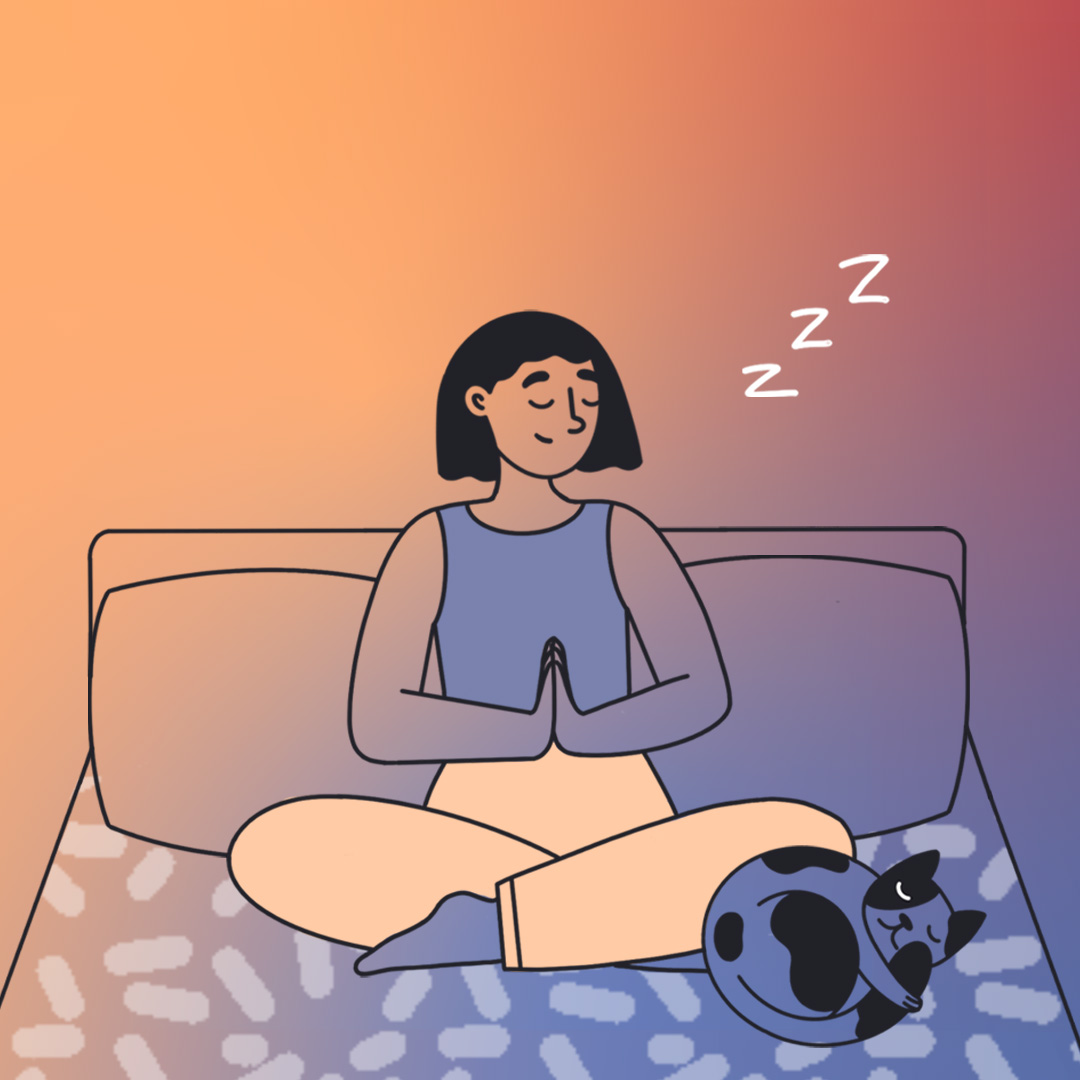
Guide to Meditation for Sleep and Anxiety
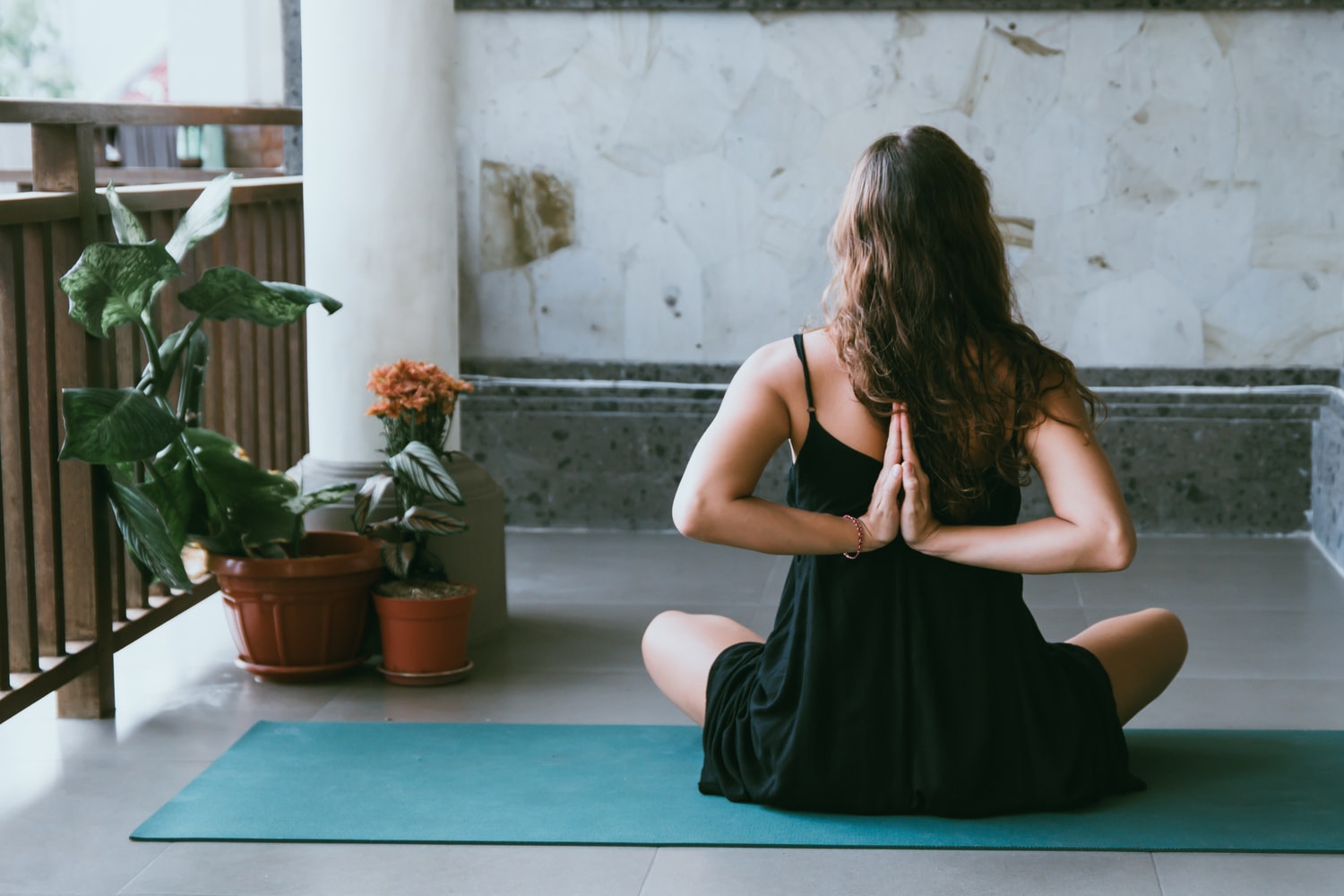
Yoga and Meditation Experts Share Sleep Tips
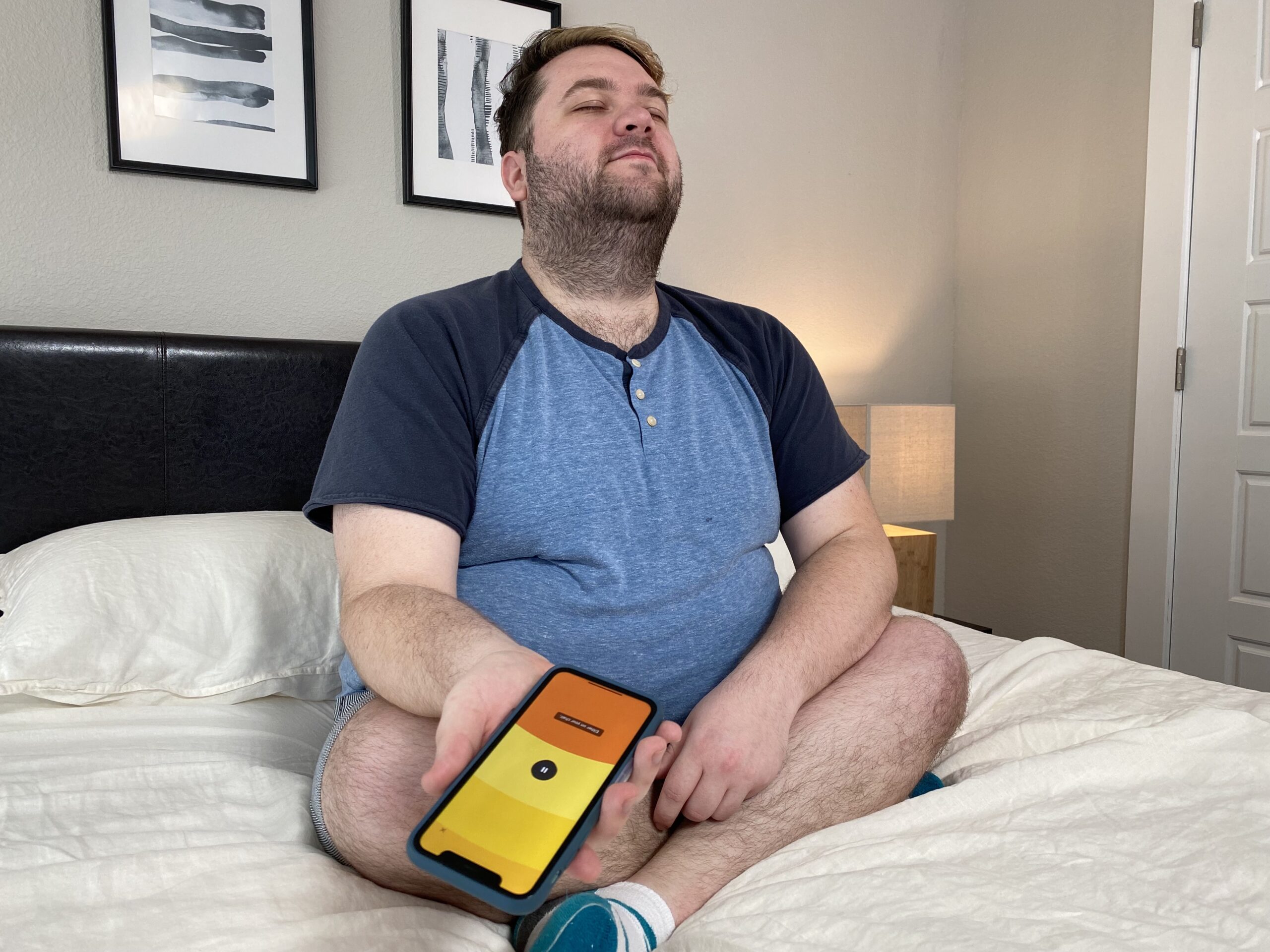
Calm vs Headspace Review – Which Meditation App Should You Get?
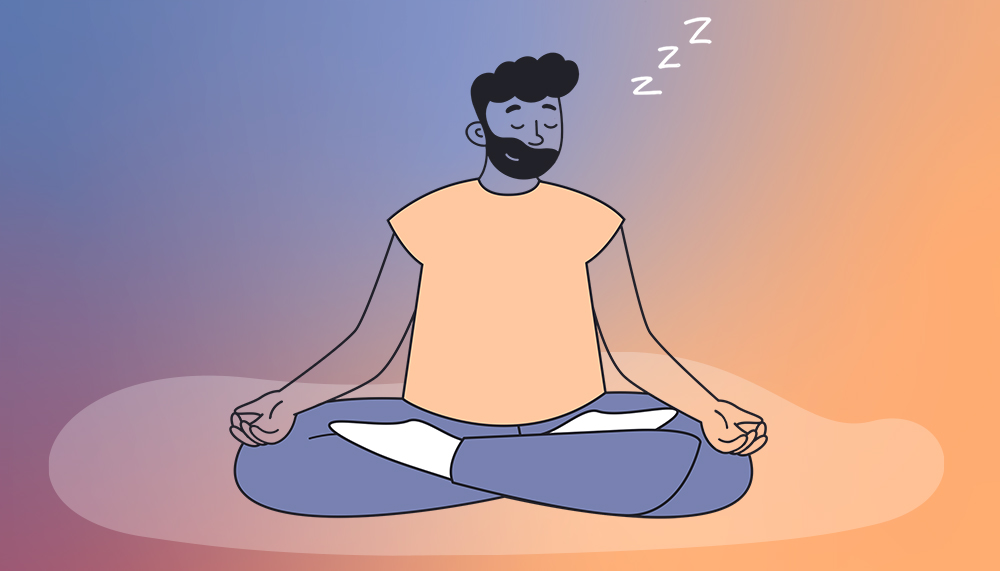
Sleep Affirmations: Do They Work?
How to Improve Both Sleep and Mental Health
As mental health and sleep are so closely connected, it’s no surprise that the same methods can have positive effects on both.
It’s important to discuss your mental health concerns with your doctor before jumping into any of these treatments. Treatment plans for mental health are not one-size-fits-all, and not every treatment option is helpful or effective for everyone.
Take a look at some of the treatments that can improve both mental health and sleep quality.
Therapy
Therapy is a common treatment for sleep disorders and mental health problems. Cognitive behavioral therapy (CBT), in particular, has shown to help patients with disorders like insomnia, OCD, anxiety, to name a few. CBT is a type of therapy that focuses on identifying how your thoughts and emotions influence your behaviors, and vice versa. In terms of your sleep, CBT can help you establish a healthier sleep and improve racing thoughts that prevent sleep.
CBT is the most common form of therapy when it comes to treating sleep disorders like chronic insomnia. In general, CBT is broken into three phases: identifying the fear or anxiety, challenging it, and replacing unhelpful thought patterns and behaviors with more helpful ones. One example of cognitive behavioral therapy as it applies to insomnia is establishing a consistent sleep schedule and sticking to it at the same time each day.
Meditation
Meditation can be helpful for people suffering from both mental health and sleep disorders. Meditation is an ancient practice that aims to clear the mind to achieve a heightened sense of awareness or mindfuness. Research shows that mindfulness can calm the mind, which can make achieving proper sleep easier. Meditation has been shown to help with insomnia, as it promotes a relaxed state.
To practice meditation follow these simple steps.
Practice Emotional Wellness
According to the National Institutes of Health, emotional wellness refers to the ability to properly handle life’s stresses and ups and downs. Emotional wellness is associated with a number of positive health outcomes, including obtaining proper sleep.
There are a few ways to test your emotional wellness, according to the University of New Hampshire. If you positively identify with most of the following, you’re likely emotionally well.
Though emotional wellness seems to be an inherent quality, some strategies can improve it. Reducing stress, getting quality sleep, learning helpful coping strategies, being mindful, and forging strong social connections are all ways to improve your emotional wellness.
Having a Sense of Purpose
Having a sense of purpose can be important for your mental health because it brings you a sense of direction, motivation, and positive self-esteem. Feeling that your life has meaning can also predict having a better sleep quality.
There are a few ways that can help you find more meaning and purpose in your life including being part of a bigger community, giving back to people, and doing what you love to do. Talking to a therapist about finding your life’s purpose may also improve your mental health, and therefore, how you sleep.
A 2017 study that looked at adults aged between 60 and 99 found an association between higher levels of a sense of meaning for one’s life and fewer sleep disturbances after a one-year follow-up. These adults also reported reduced symptoms of sleep disorders like sleep apnea and restless leg syndrome.
A 2020 study had similar findings after comparing the top quartile of older adults with the highest sense of purpose versus the bottom quartile in a sample of 13,770. The older adults with the highest sense of purpose were 33% less likely to develop sleep problems such as having difficulty falling asleep or staying asleep than those with the lowest sense of purpose.
FAQs
How does sleep affect your mental health?
Sleep is a key component for your brain and body to properly function, which includes your ability to regulate emotions and manage stress. So, it’s important to make sure you know you’re getting ample amounts of sleep, as this can affect your mental health. If you are not receiving enough quality sleep, it can worsen symptoms of psychiatric disorders such as depression, anxiety, schizophrenia, and bipolar disorder.
Is there a link between sleep and mental health?
Yes, there is a link between your mental health and how you sleep. This link is bidirectional, which means both influence each other to stay healthy and stable. If your mental health is suffering, there is a chance you’re also experiencing difficulty falling asleep or staying asleep. Conversely, being sleep deprived can make it difficult to regulate your emotions or accomplish daily tasks.
How much sleep is ideal for maintaining good mental health?
For adults, the CDC recommends sleeping at least seven hours per night, but some adults may need eight to nine hours of sleep to feel fully rested depending on their lifestyle and health status. Getting less than the recommended amount of sleep can lead to symptoms of chronic sleep deprivation that can negatively impact your mental health. Ultimately, the amount of sleep that the CDC recommends will vary depending on age.
